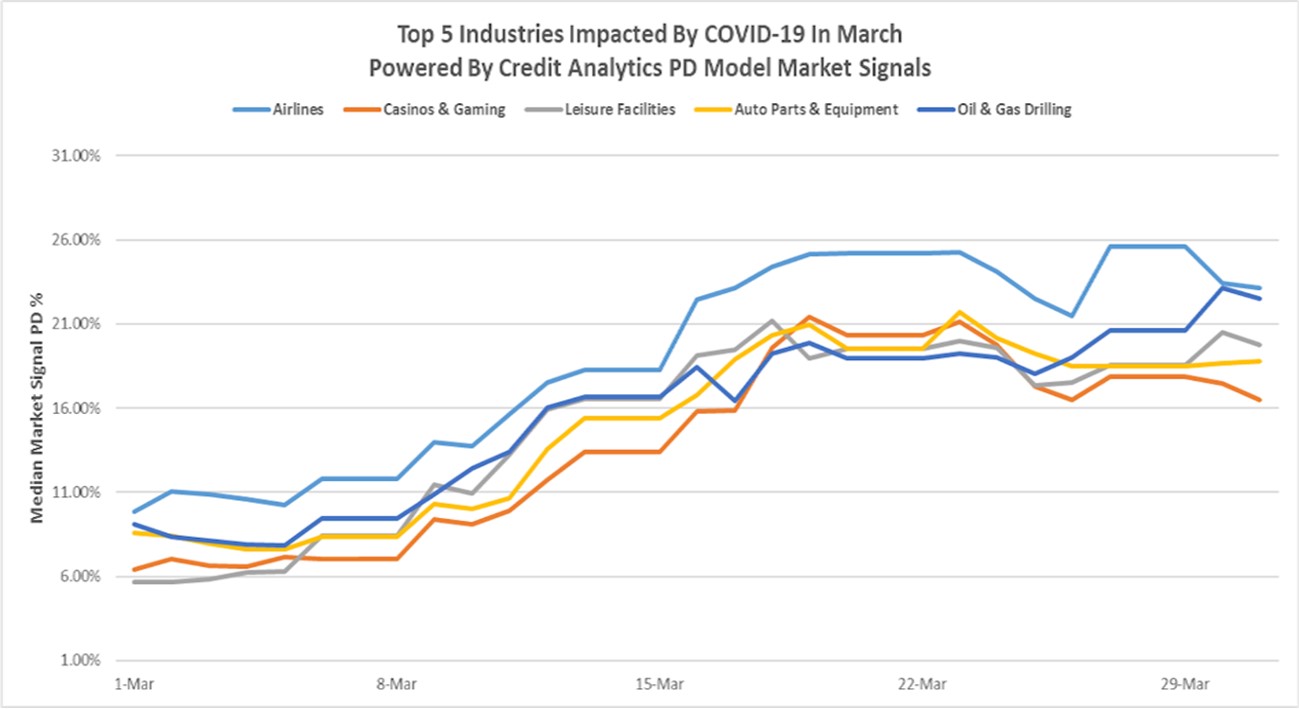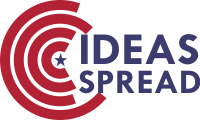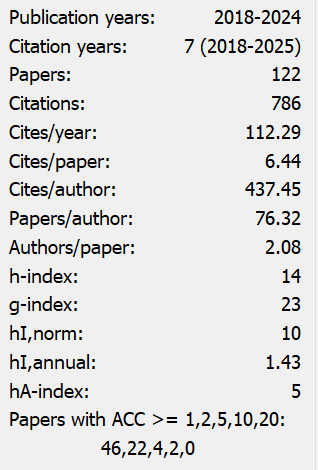The Adhesive Effect of Corporate Spirituality on Organizational Internal-External Strategies and Sustainability
Abstract
This particular study investigates the adhesive effect of corporate spirituality on Organizational internal-external strategies and its overall influence on Organizational sustainability. The study is governed and examined through the lens of organizational learning and also spirituality leadership theory. The research stems from the context of oil and gas firms from a developing Country (Nigeria) and it takes a quantitative approach, employing 30 pilot survey data from the research setting. The results found that corporate spirituality has a significant positive effect and it strengthens and moderates the relationship between Organizational internal-external strategies and the sustainability of Oil and Gas firms. Yet, the reality remains that even in leading Organizations that recognize the importance (directly or indirectly) of corporate spirituality and purpose, the concept seems to be slightly neglected and underappreciated. This study stands to enhance (with empirical evidence) the examined relationship, especially in Oil and Gas firms, which is a sector going through a turbulent phase globally in terms of sustainability. Ultimately, the study promotes corporate spirituality values among Organizations, which will subsequently result in the development of a suitable and resilient model towards sustainable performance.
References
Ahmad, S. (2015). Green human resource management: policies and practices. Cogent Business & Management, 2(1), 10-17. https://doi.org/10.1080/23311975.2015.1030817
Al-Hussaini, S. H., Turi, J. A., Altamimi, A. N., Khan, M. A., & Ahmad, M. (2019). Impact of talent management strategies on employee performance behaviour with the mediating role of talent management outputs. Archives of Business Research, 7(3), 116-124. http://dx.doi.org/10.14738/abr.73.6309.
Amnesty International. (2018). Niger Delta Negligence. [Online]. Retrieved from https://www.amnesty.org/en/latest/news/2018/03/niger-delta-oil-spills-decoders/.
Argyris, C., & Schön, D. A. (1996). Organizational learning II: Theory, method and practice Reading. Asia Pacific Journal of Human Resources, 36(1), 107-109.
Attwood, M., & Beer, N. (1988). Development of a learning Organization. Management Education and Development, 19(3), 201-214.
Beck, C. Rashidbeigi, S. Roelofsen, O., & Speelman, E. (2020). The future is now: How oil and gas companies can decarbonize. [Online]. Retrieved from https://www.mckinsey.com/~/media/McKinsey/Industries/Oil%20and%20Gas/Our%20Insights/The%20future%20is%20now%20How%20oil%20and%20gas%20companies%20can%20decarbonize/The-future-is-now-How-oil-and-gas-companies-can-decarbonize.pdf
Behera, R., & Mohapatra, A. D. (2020). Talent retention strategy in the Indian it industry: A review based study. Journal of Critical Reviews, 7(14), 1568-1577.
Betaraya, D., Nasim, S., & Mukhopadhyay, J. (2018). Subsidiary Innovation in a Developing Economy: Towards a Comprehensive Model and Directions for Future Research. FIIB Business Review, 7(2), 1-7. https://doi.org/10.1177/2319714518788387
BBC. (2019). Oil and gas sector 'facing skills crisis'. [Online]. Retrieved from https://www.bbc.com/news/uk-scotland-scotland-business-46947628.
Bloomberg Green. (2020). The toxic legacy of 60 years of abundant Oil. [Online]. Retrieved from https://www.bloomberg.com/features/2020-niger-delta-oil-pollution/
Bruederle, A., & Hodler, R. (2019). Effect of oil spills on infant mortality in Nigeria. Proceedings of the National Academy of Sciences, 116(12), 5467-547. https://doi.org/10.1073/pnas.1818303116
Cella-De-Oliveira, F. A. (2013). Indicators of organizational sustainability: A proposition from organizational competences. International Review of Management and Business Research, 2(4), 962-979.
Dodgson, M. (1993). Organizational Learning: A Review of Some Literatures. Organization Studies, 14(3), 375-394. https://doi.org/10.1177/017084069301400303
Dumont, J., Shen, J., & Deng, X. (2017). Effects of Green HRM Practices on Employee Workplace Green Behavior: The Role of Psychological Green Climate and Employee Green Values. Human Resource Management, 56(4), 613-627. https://doi.org/10.1002/hrm.21792
Eccles, R. Serafeim, G. Seth, D., & Chu Yee Ming, C. (2013). The performance frontier: innovating for a sustainable strategy: interaction. Harvard Business Review, 91(7/8), 17-17.
Fleischman, P. R. (1994). The healing spirit: Explorations in religion and psychotherapy. Cleveland, OH: Bonne Chance Press.
Fry, L. W. (2003). Towards a theory of Spiritual Leadership. The Leadership Quarterly, 14(2003), 693-727. https://doi.org/10.1016/j.leaqua.2003.09.001
Hair, J. F., Anderson, R. E., Babin, B. J., & Black, W. C. (2006). Multivariate data Analysis. 7th edn. Edinburgh: Pearson Education Limited.
Garratt, R. (1987). The learning Organization. London: Fontana/Collins.
Global Energy Talent Index. (2017). The Global Energy Talent Index Report. [Online]. Retrieved from https://www.getireport.com/wp-content/uploads/2017/05/GETI-Report_2017_online-version_low-res.pdf
Kanter, R. (1989). When Giants learn to dance. London: Simon and Schuster.
Keyes, C. L. (2005). Mental illness and/or mental health? Investigating axioms of the complete state model of health. Journal of Consulting and Clinical Psychology, 73(3), 539-548. https://doi.org/10.1037/0022-006X.73.3.539
Khan, A. J. & Iqbal, J. (2020). Do High Performance Work Practices Increase the Organizational Performance of Public Sector Companies? An Investigation of Mediation Mechanism. Pakistan Journal of Social Sciences (PJSS), 40(2), 1007-1021.
Lance, C. E. Butts, M. M., & Michels, L. C. (2006). The Sources of Four Commonly Reported Cutoff Criteria: What Did They Really Say? Organizational Research Methods, 9(2), 202-220. https://doi.org/10.1177/1094428105284919
Lopez, S. P. Peon, J. M., & Ordas, C. J. V. (2005). Organizational learning as a determining factor in business performance. The Learning Organization, 12(3), 227-245. https://doi.org/10.1108/09696470510592494
Maddock, R. C., & Fulton, R. L. (1998). Motivation, emotions, and leadership: The silent side of management. Westport, CT: Quorum Books.
Mathew, A. (2015). Talent management practices in select organizations in India. Global Business Review, 16(1), 137-150. https://doi.org/10.1177/0972150914553527
Murray, A. (2019). The 2019 Fortune 500 CEO survey results are in. [Online]. Retrieved from https://www.mckinsey.com/business-functions/organization/our-insights/purpose-shifting-from-why-to-how
Neck, C. P., & Milliman, J. F. (1994). Thought Self-leadership: Finding Spiritual fulfillment in Organizational Life. Journal of Managerial Psychology, 9(6), 9-16. https://doi.org/10.1108/02683949410070151
NNPC. (2020). Oil Production. [Online]. Retrieved from https://nnpcgroup.com/NNPC-Business/Upstream-Ventures/Pages/Oil-Production.aspx
Nunnally, J. C., & Bernstein, I. H. (1994). Psychometric theory. Sydney: McGraw-Hill.
Obaid, T. F., & Alias, R. B. (2015). The impact of green recruitment, green training and green learning on the firm performance: Conceptual paper. International Journal of Applied Research, 1(12), 951-953.
Pedler, M. Boydell, T., & Burgoyne, J. (1989). Towards the learning Company. Management Education and Development, 20(1), 1-8. https://doi.org/10.1080/0158037890110201
Peters, T., & Waterman, R. (1982). In search of excellence: Lessons from America’s best run companies. New York: Harper and Row.
Pfeffer, J. (2003). Business and the spirit. In Giacalone, R. A., & Jurkiewicz, C. L. (Eds.), Handbook of workplace spirituality and organizational performance (pp. 29-45). New York: M. E. Sharp.
Prahalad, C. K., & Hamel, G. (1990). The core competencies of the Organization. Harvard Business Review, 68, 79-91.
Rey, C., Velasco, J. S. C., & Almandoz, J. (2019). The New Logic of Purpose Within the Organization. In: Rey C., Bastons M. and Sotok P. (Eds). Purpose-driven Organizations (pp. 3-15). Cham, Switzerland: Palgrave Macmillan.
Senge, P. (1990). The Leader’s new work: Building learning Organizations. Sloan Management Review, 32(1), 7-23.
S&P Global Market Intelligence. (2020). Industries most and least impacted by COVID-19 from a Probability of Default Perspective. Retrieved from https://www.spglobal.com/marketintelligence/en/news- insights/blog/industries-most-and-least-impacted-by-covid-19-from-a-probability-of-default-perspective-march- 2020-update
Statista. (2020). Average annual OPEC crude oil price from 1960-2020. [Online]. Retrieved from https://www.statista.com/statistics/262858/change-in-opec-crude-oil-prices-since-1960/
Tang, G., Chen, Y., Jiang, Y., Paille, P., & Jia, J. (2018). Green Human Resource Management Practices: Scale development and validity. Asia Pacific Journal of Human Resources, 56(1), 31-55. https://doi.org/10.1111/1744-7941.12147
Tumelero, C., Sbragia, R., & Evans, S. (2019). Cooperation in R & D and eco-innovations: The role in companies’ socioeconomic performance. Journal of Cleaner Production, 207, 1138-1149. https://doi.org/10.1016/j.jclepro.2018.09.146
The New Yoke Times. (2020). Too much Oil: How a barrel came to be worth less than nothing. [Online]. Retrieved from https://www.nytimes.com/2020/04/20/business/oil-prices.html
USDA FAS. (2018). China - Peoples Republic of Biofuels Annual. [Online]. Retrieved from https://apps.fas.usda.gov/newgainapi/api/report/downloadreportbyfilename?filename=Biofuels%20Annual_Beijing_China%20-%20Peoples%20Republic%20of_7-25-2018.pdf
Thomas, L., & Strupczewski, J. (2022). Ukraine crisis will hit economy but EU is ready, officials say. [Online]. Retrieved from https://www.reuters.com/markets/europe/eu-ready-take-economic-pain-imposing-sanctions-russia-2022-02-25/
Thu, P., & Paillé, P., & Halilem, N. (2019). Systematic review on environmental innovativeness: A knowledge-based resource view. Journal of Cleaner Production. 211: 1088-1099. https://doi.org/10.1016/j.jclepro.2018.11.221
Umrani, W. A. (2016). Moderating effect of organizational culture on the relationship between corporate entrepreneurship and business performance in Pakistan's banking sector. Malaysia: Universiti Utara Malaysia, Kedah Darul Aman.
Wehrmeyer, W. (1996). Greening People – Human Resources and Environmental Management. Sheffield, England: Greenleaf Publishing.
Wiseman, P. (2022). Economic dangers from Russia's invasion ripple across Globe. [Online]. Retrieved from https://apnews.com/article/russia-ukraine-vladimir-putin-coronavirus-pandemic-business-health-9478a9825c9abfde5f6505bd34b2998c
Zawawi, N., & Wahab, S. A. (2019). Organizational sustainability: A redefinition? Journal of Strategy and Management, 12(3), 397-408. https://doi.org/10.1108/JSMA-08-2018-0077


This work is licensed under a Creative Commons Attribution 4.0 International License.
Copyright for this article is retained by the author(s), with first publication rights granted to the journal.
This is an open-access article distributed under the terms and conditions of the Creative Commons Attribution license (http://creativecommons.org/licenses/by/4.0/).


























